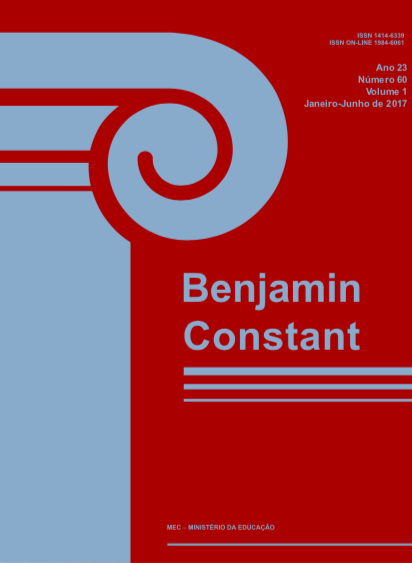Teaching o f Chemistry for the visually impaired: studies on the mental modeling of organic compounds
Abstract
There is no doubt about the amount of information that can be provided by sight, but the various forms of
language (spoken, gestural etc.) combined with thought processes also contribute to learning.The visually
impaired (VI) interact and learn as any other student, provided that they are submitted to the objective world
considering their specificity. This research deals with the study of the process of formation of mental models
of molecular structures of organic compounds by a visually impaired student in an Institution of Support to the regular education of the State Secretariat of Education. Based on Johnson-Laird's ideas, the results point out that students with visual impairments in the regular classroom can construct their mental models, provided their specificities are taken into account, analogically representing knowledge in a way consistent with the knowledge produced and validated by Science, being able to understand the representational language of Chemistry referring to the nomenclature of organic compounds.





.png)
